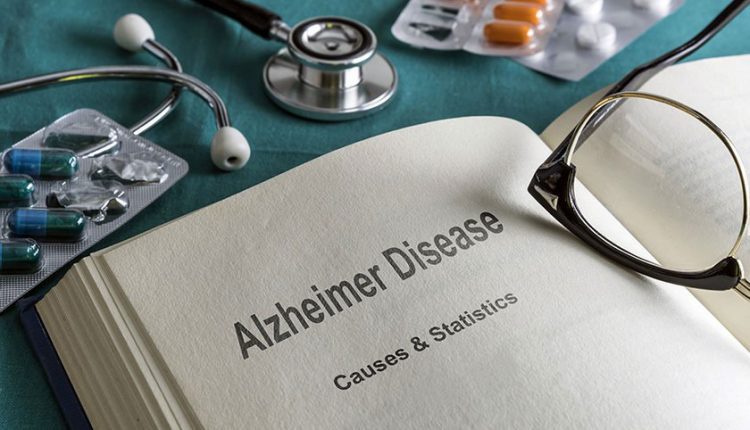
Alzheimer’s disease (AD) was first described in 1906. Since then, scientists have made notable progress in understanding how Alzheimer’s affects the brain and learning how to make life better for affected people and their families. Alzheimer’s is not curable, but some treatments can slow the progression of the disease. Alzheimer’s is among common mental disorders. Learn more about the basics of Alzheimer’s disease and its treatments in this article.
Contents
- 1 What Is Alzheimer’s Disease?
- 2 Dementia vs. Alzheimer’s
- 3 Who Has Alzheimer’s Disease?
- 4 What Are the Symptoms of Alzheimer’s Disease?
- 5 What Are the Early Signs of Alzheimer’s Disease?
- 6 Diagnosing Alzheimer’s Disease
- 7 Other Alzheimer’s Treatments
- 8 How to Prevent Alzheimer’s
- 9 Alzheimer’s Disease Causes and Risk Factors
- 10 Alzheimer’s Care
What Is Alzheimer’s Disease?
Alzheimer’s disease is a progressive neurologic condition that causes the brain to shrink and brain cells to die. It is a progressive neurodegenerative disorder that affects the brain, resulting in a decline in cognitive function and memory. Despite not fully understanding its causes, Alzheimer’s disease is believed to be caused by genetic, environmental, and lifestyle factors. In Alzheimer’s, two abnormal proteins accumulate in the brain: beta-amyloid plaques and tau tangles. These proteins disrupt the normal functioning of brain cells and can lead to the death of neurons, which in turn causes a decline in cognitive function.
Alzheimer’s Stages
Alzheimer’s is categorized into seven stages. In each of these stages, patients will need increasing support from a caregiver.
- This stage does not present any symptoms, but an early diagnosis could still be possible based on family history.
- First, symptoms appear, including forgetfulness.
- Some mental and physical impairments may be observed, such as reduced memory and concentration, which may only be noticed by those closest to the patient.
- It is common to diagnose Alzheimer’s at this stage, although it is still considered mild. Memory loss and the inability to perform everyday tasks are evident.
- Symptoms that are moderate to severe require help from family or caregivers.
- This stage of Alzheimer’s may require assistance with daily tasks, such as eating and dressing.
- Alzheimer’s disease in this stage may result in speech and facial expression loss.
What Changes Occur in the Brain with Alzheimer’s Disease?
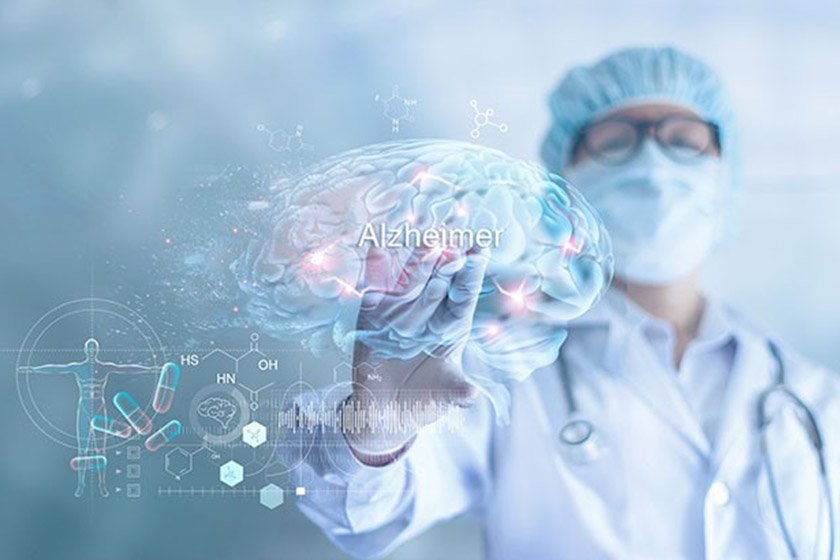
In healthy ageing, the brain shrinks but does not lose neurons in large numbers. In Alzheimer’s disease, however, neurons are extensively damaged, as many cease to function, lose connections with other neurons, and die. With Alzheimer’s disease, connectivity between neurons can break down as the disease progresses, and many brain areas begin to shrink. In the final stages of the disease, brain atrophy is widespread, resulting in significant loss of brain volume.
Dementia vs. Alzheimer’s
If you think what is the difference between Dementia and Alzheimer’s disease? You should know Alzheimer’s is not the same as Dementia; it is a type of Dementia. Though the two are sometimes used interchangeably, they are not the same. The difference between Dementia and Alzheimer’s is that Dementia is a general term used for disorders characterized by symptoms of memory loss, such as confusion and forgetfulness. Specific diseases such as Alzheimer’s disease, Parkinson’s disease, traumatic brain injury, and others may also cause these symptoms. Treatments, symptoms, and causes of these diseases can vary.
Who Has Alzheimer’s Disease?
Alzheimer’s is the most common form of Dementia, a term used to describe conditions where the brain no longer functions properly. Alzheimer’s disease has alarming statistics:
- More than 747,000 Canadians have Alzheimer’s or another form of Dementia.
- More than 44 million people worldwide live with Dementia, making it a global health crisis.
- Younger people can develop Alzheimer’s disease, but it is less common.
- Beyond the age of 65, the number of people with the disease doubles every five years.
- After age 60, symptoms of this disease appear, and the risk increases with age.
What Are the Symptoms of Alzheimer’s Disease?

While everyone experiences occasional bouts of forgetfulness, those with Alzheimer’s disease display a set of behaviours and symptoms over time that worsen. Memory loss in the early stages of Alzheimer’s disease is a warning sign. Alzheimer’s disease is not a normal part of ageing. Besides memory problems, Alzheimer’s patients may experience some of the following symptoms:
- Getting lost in familiar places or repeating questions are signs of memory loss that impairs daily life
- Money problems and difficulty paying bills
- Find it challenging to complete familiar tasks at home, work or at leisure
- Weak or impaired judgment
- Having difficulty retracing your steps to find misplaced items
- Mood, personality, or behavioural changes
- New problems with words in speaking or writing
What Are the Early Signs of Alzheimer’s Disease?
Early AD may show mild and subtle symptoms, so subtle that their friends and family may not notice a change in their thinking or behaviour. During the early stages of Alzheimer’s, you will likely have trouble recalling new information. Because it begins to affect the brain areas that enable learning, the disease tends to negatively affect new information. Frequently repeating questions, forgetting essential conversations or appointments, or misplacing objects may happen.
The occasional onset of forgetfulness isn’t necessarily a sign of Alzheimer’s disease. However, you should speak with your doctor if your memory problems continue. The early identification of AD symptoms and intervention help prolong and boost the quality of life. Warning signs of Alzheimer’s disease include:
- Misplacing objects and having trouble retracing steps
- Inability to manage finances, drive to a location, etc.
- Having difficulty planning or solving problems
- Daily tasks take longer to complete
- Having trouble keeping track of time
- Distance perception and colour recognition are problematic
- Finding it difficult to follow a conversation
- Making bad decisions due to poor judgment
- Social withdrawal
- An increase in anxiety and changes in mood and personality
Diagnosing Alzheimer’s Disease
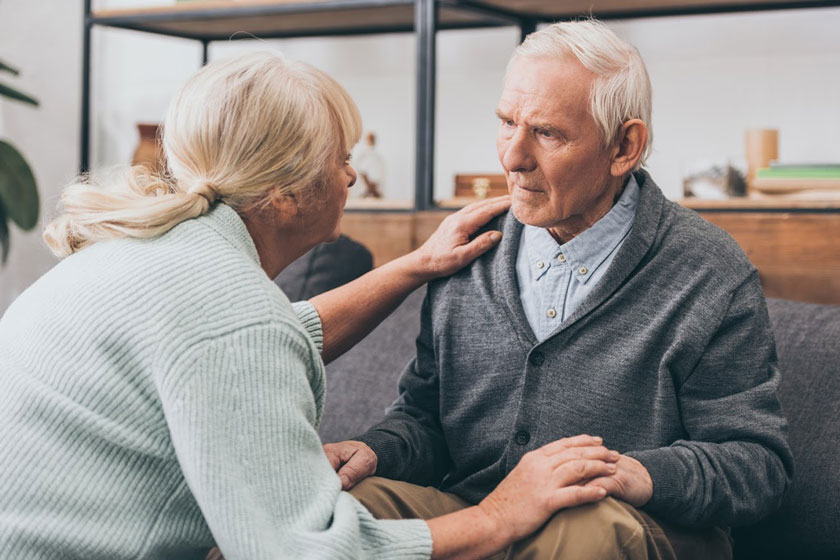
You can only diagnose Alzheimer’s disease by examining brain tissue after death. However, your doctor can perform other tests and examinations to determine your mental abilities, diagnose Dementia, and rule out other conditions. First, they’ll likely ask about your:
- Medical history
- Symptoms
- Family medical history
- Diet, alcohol intake and lifestyle
- Current or past medications and conditions
Afterward, your doctor will likely perform several tests to determine whether you have Alzheimer’s disease.
Alzheimer’s Tests
Although no definitive test exists for Alzheimer’s disease, your doctor might order several tests to confirm your diagnosis; these could be mental, physical, neurological, and imaging tests.
Your doctor may begin with a mental status test. To assist them in determining your short-term memory, long-term memory, and orientation to place and time. They may ask you about time or to remember and recall a list of words.
Next, your doctor will likely conduct a physical examination. For instance, they might check your blood pressure, heart rate, and temperature and, in some situations, collect urine or blood samples for laboratory testing.
Additionally, your doctor may order brain imaging tests to produce images of your brain. These tests may include:
- Magnetic resonance imaging (MRI): MRIs detect markers, including inflammation, bleeding, and structural problems.
- Computed tomography (CT) scan: CT scans produce X-ray images that you can use to detect abnormalities in your brain.
- Positron emission tomography (PET) scan: A PET scan can help your doctor find plaque buildup. Plaque is a protein substance associated with Alzheimer’s symptoms.
The doctor can also order blood tests to check for genes that indicate a high risk of Alzheimer’s disease.
What Is the Last Research on Alzheimer’s Disease?
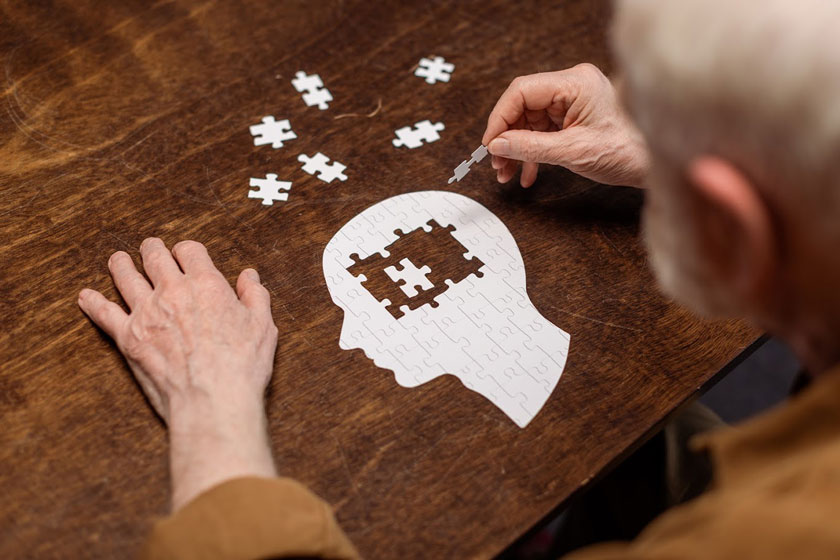
As you become more informed about Alzheimer’s medications, you will discuss them with your physician and make more informed decisions about your treatment plan. Although current medications cannot cure Alzheimer’s disease, some drugs may help lessen symptoms, including memory loss and confusion.
FDA-Approved Drugs for Alzheimer’s
Several medications approved by the FDA might temporarily alleviate Alzheimer’s disease symptoms. Before getting any medical treatment, it is necessary to speak with your health care provider to determine if appropriate. An experienced physician who uses these medications should monitor patients and ensure the recommendations are strictly followed.
Drugs That May Change or Delay the Progression of the Disease
Alzheimer’s patients may benefit from drugs in this category by delaying clinical decline and improving cognition and function. Although there are currently no approved drugs in this category, several are under review by the U.S. Food and Drug Administration (FDA) and tested in clinical trials. Several drugs target the underlying biology of the disease, slowing or stopping its progression.
Drugs That Treat Symptoms
Before beginning a new medication, be sure your physician, pharmacist, and care team know all other medications, alternative treatments, products, and dietary supplements currently being used (including over-the-counter and alternative preparations). This step is necessary to avoid side effects caused by medications interfering with one another. Talk to your doctor about all medicines you’re taking to understand their purpose and how to take them.
Cognitive (Memory and Thinking) Symptoms
Although these medications will not cure Alzheimer’s disease, they can help lessen the symptoms for a limited time by affecting specific chemicals involved in transmitting messages to and from the brain’s nerve cells.
Non-Cognitive (Behavioural and Psychological) Symptoms
Alzheimer’s affects more than just memory and thinking. Dementia may cause behavioural and psychological symptoms that affect a person’s quality of life. Dementia patients may experience sleep changes such as difficulty sleeping, taking daytime naps, and other changes in sleep patterns. Some drugs can help Insomnia in people with mild to moderate Alzheimer’s disease.
Other Alzheimer’s Treatments
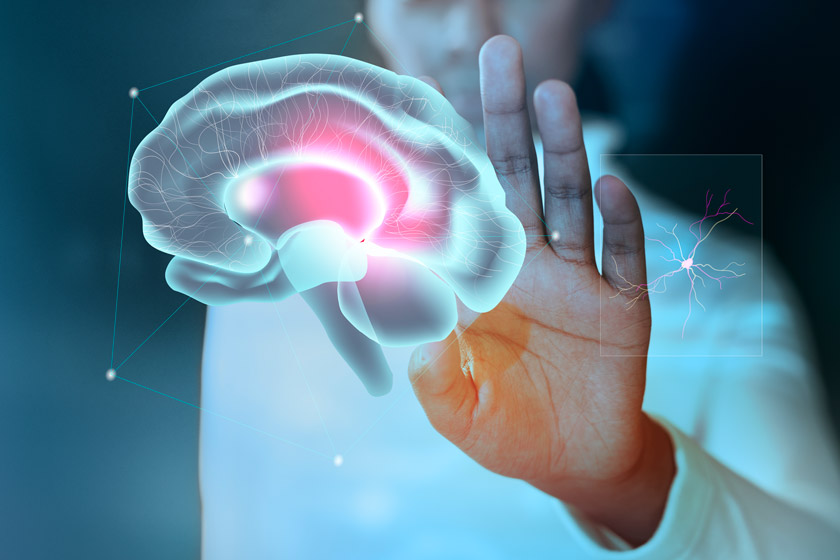
Along with medication, healthy lifestyle changes may help manage your condition. Your doctor might suggest strategies to aid you; including:
- Concentrate on your tasks.
- Keep confusion to a minimum.
- Try to avoid confrontation.
- Rest well every day.
- Stay calm.
In addition to treating the disease, doctors can implement conventional and alternative treatment options to manage the symptoms. If you are interested in alternative treatments for Alzheimer’s disease, you can learn about the 5 best turmeric recipes to combat Alzheimer’s.
How to Prevent Alzheimer’s
While Alzheimer’s has no known cure, there are no foolproof preventative measures. However, researchers are focusing on healthy lifestyle habits to reduce the risk of cognitive decline. Researchers do not know how to prevent Alzheimer’s disease. However, you can take steps to lower your risk of developing the disease. Staying physically, mentally, and socially fit can reduce your risk for cognitive decline, including Alzheimer’s. All of these are excellent ways to stay healthy in general. Talk with your doctor about any new lifestyle changes you intend to make.
- Maintain a healthy diet.
- Quit smoking.
- Exercise regularly.
- Try cognitive training exercises.
- Try exercise that can help wake up the body and brain.
- Eat a plant-based diet.
- Keep up the mental exercise.
- Consume more antioxidants.
- Maintain an active social life.
- Maintain a healthy lifestyle.
- Use apps and brain games for Alzheimer’s prevention.
Also, we mention in the best card games for seniors article that:
But reality’s something else. Playing games keeps you in a healthy state, physically and mentally. Since playing top games for seniors greatly affects one’s memory and cognitive abilities, reducing the risk of developing illnesses like dementia or Alzheimer’s. Besides, group card games give you a great chance to improve your social life and help seniors feel useful and happy.
Alzheimer’s Disease Causes and Risk Factors

There is no single cause of Alzheimer’s disease, but experts have identified certain risk factors, including:
- Family History: You are more likely to develop the disease if someone in your family has developed it.
- Age: Alzheimer’s disease most often appears in people 65 years of age and older. Even though younger-onset Alzheimer’s is much less common than the later form of the disease, it affects five percent of people with Alzheimer’s. Often these people are misdiagnosed.
- Genetics: Researchers have linked specific genes to Alzheimer’s disease. Although there is no definitive cause of Alzheimer’s, genetics may play a role. One particular gene is of interest to researchers. Apolipoprotein E (APOE) has been linked to the onset of Alzheimer’s symptoms in seniors. A blood test can verify whether or not someone has this gene, increasing their risk for developing Alzheimer’s. However, even if someone has this gene, they may not develop Alzheimer’s. It’s also possible for someone who doesn’t have the gene to develop Alzheimer’s. There’s no way to predict whether someone will develop Alzheimer’s.
- Mild Cognitive Impairment (MCI): MCI, which results in changes in the way the brain works, does not have the same severe symptoms as Alzheimer’s or other progressive dementias. The risk of Alzheimer’s and other forms of Dementia increases with MCI, particularly MCI with memory problems. MCI, however, doesn’t always progress. It can reverse or remain stable at times.
- Cardiovascular Disease: The health of your heart and blood vessels plays a critical role in maintaining brain health. The brain is supplied with oxygen and nutrients from the blood, and the heart pumps blood to it. Thus, cardiovascular risk factors such as smoking, obesity, diabetes, high cholesterol, and high blood pressure in midlife can also be associated with a higher risk of developing Alzheimer’s disease and other dementias.
- Education and Alzheimer’s: There is no apparent reason why fewer years of formal education are linked to an increased risk of Alzheimer’s and other dementias, but some scientists think the brain uses different channels of neurons when developing Alzheimer’s and other dementias.
- Traumatic Brain Injury: Alzheimer’s disease and other dementia diseases are more likely to occur in people with moderate or severe brain injury, such as a blow to the head or a skull injury that causes amnesia or loss of consciousness for more than 30 minutes.
Alzheimer’s Care
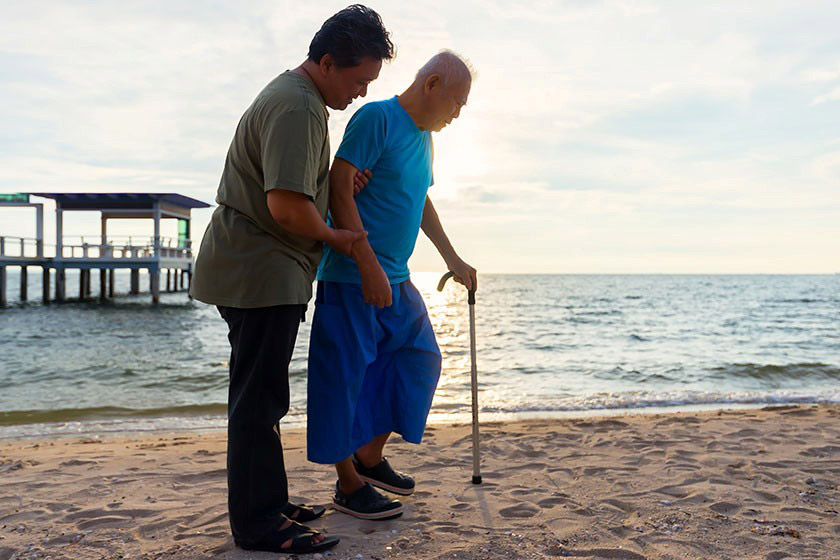
Protecting seniors from abuse is crucial since they are regarded as one of society’s most valuable assets. It can be a rewarding experience to provide care for a family member with Alzheimer’s. It’s a full-time job, and it’s typically not easy, but it can be enriching. Caregiving requires many skills, especially patience, creativity, stamina, and the ability to see the joy in helping someone you care about live the best life they can. Caregivers need to look after themselves and the individuals they care for. The role’s responsibilities can increase the risk of depression, poor nutrition, and inactivity.
Final Words
By maintaining a healthy lifestyle through exercise, you may prevent AD. it is still unclear exactly how Alzheimer’s develops. What is known is that the disease grows over time, and treatment can help delay symptoms and improve the quality of life. It’s essential to seek medical advice if you or a loved one experiences AD symptoms. Your doctor will determine whether the symptoms are mild, moderate, or severe.
I had never seen my grandfather. Sadly, he died of Alzheimer’s disease. My biggest nightmare is that someday same thing happens to my dad. He is in his 60s, he reads a lot, and he always works out. He also has an excellent eating habit. Besides, we’ve never seen any of the symptoms. But none of these make me worry less. Should we get a genetic test for Alzheimer’s?
I have heard that the result of an Alzheimer’s genetic test is hard to interpret, so the experts don’t recommend it. The best thing right now is to consult a doctor and focus on taking care of your father. Make him use games and activities that prevent Alzheimer’s. And I know it sounds hard, but worrying all the time won’t get you anywhere. Your anxiety might affect your father. I’m sure even if he stays quiet, the fear concerns him too. If you relax, it’s easier for him to relax.
Actually, I kind of have the same situation going on. We lost my mother because of Alzheimer’s. And I spent a big part of my life worrying about ending up like her. But worry and fear do you no good. So I just started using brain training methods and accepted the fact that some things are not under my control.
Alzheimer’s sounds scary. I have never had anyone around me suffer from it, but I have to admit the idea of not being able to remember my family and loved ones makes me feel terrified. I wish there was a definite method that would prove effective when fighting this disease. That would have made things very easier and the disease very less terrifying.
One of our relatives has Alzheimer’s. It’s so sad because he can not even remember small details about himself and his family. One day his family has found him in the street; he was confused and lost. I always wonder if there is any particular place for seniors with Alzheimer’s.
Ya, it’s so sad, we had a neighbour who had Alzheimer’s disease, and his family was in trouble; it’s so hard to take care of a person with Alzheimer’s disease. They told me that doctors said one of the main reasons for Alzheimer’s is genetic, lifestyle, environmental factors that affect the brain over time. And the first signs of Alzheimer’s are losing memory little by little, repeating questions and poor judgment leading to bad decisions. It’s good to prevent it by stopping smoking and eating healthy.
The reality of Alzheimer’s can be harsh and painful.
My grandma is 72 years old. In the past few years, She developed Alzheimer’s.
She was a very jolly woman and loved people. Now, she barely recognizes anyone. Whenever I meet her and ask who I am, she would say I am a house member. But she can’t exactly recognize me. At times, she remembers the kid version of mine.
The only person she remembers is my grandpa. Also, sometimes, she will suddenly recognize us and call us by our names.
It’s painful to deal with it. Something stabs the soul.
To protect my grandpa from this upsetting disease, I visit him twice a week and force him to play some games along with me, like Jigsaw puzzles or word crack. That’s the least I can do to help him keep his beautiful memories.
Such a lovely person you are! Socializing and being around the seniors are really helpful. You can also go for a walk with him when the weather is good enough, and he’s also in the mood. As the article says, having physical activities esp, when done with a close friend and family, is effective.
In January of 1995, My mother was diagnosed with Alzheimer’s disease. In 2002, she got to where my dad or family members could not take care of her. By Early 2005, she had no idea who we were her daughters, grandchildren, even her husband. It was heartbreaking and saddening; the one who raised me had no idea who I was. I wish she had had more time. Thank you for educating thousands of people and helping them grow. Keep doing what you are doing.
I highly recommend everyone to read “36-Hour Day” by Nancy L. Mace and Peter V. Rabbins.
The information and resources in this book are continuously updated so caregivers and families can access the most up-to-date information. It is an honest account of the experience of living with dementia and Alzheimer’s. In it, caregivers will learn about the challenges, strategies, resources, and support they will need to help their loved ones during this challenging time.
One of the most important things we need to remember about Alzheimer’s disease is that memory is not the only thing affected by it. When my grandfather was still with us, we had no idea he was dealing with Alzheimer’s. He didn’t have any noticeable memory issues, but sometimes he acted unpredictably. One time, when my grandpa was in the hospital, he suspected the nurse was stealing his food, so he started cursing the nurse and telling everyone that he was a thief. After my grandfather passed away, his doctor said his brain had shrunk in size due to Alzheimer’s, affecting his way of thinking and judgement.
Gaining insight into severe matters like Alzheimer’s and other mental and cognitive conditions can be one of the most responsible things that we can do. With insight comes understanding, and with understanding comes support.